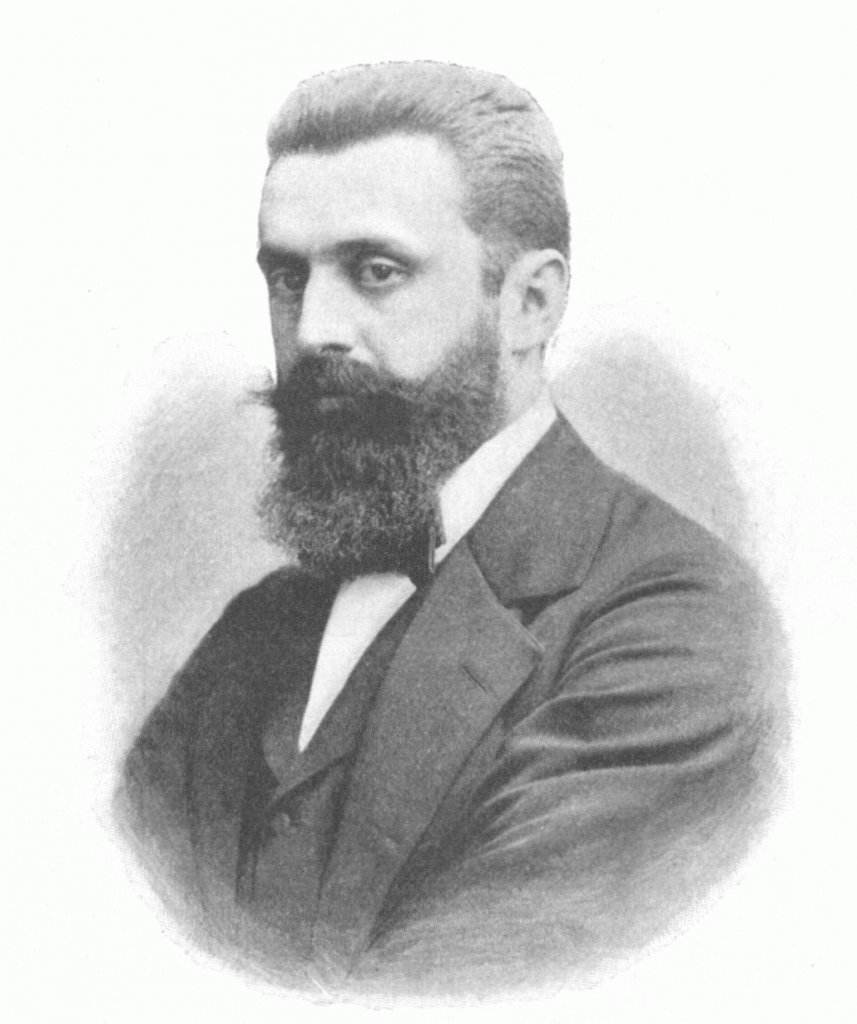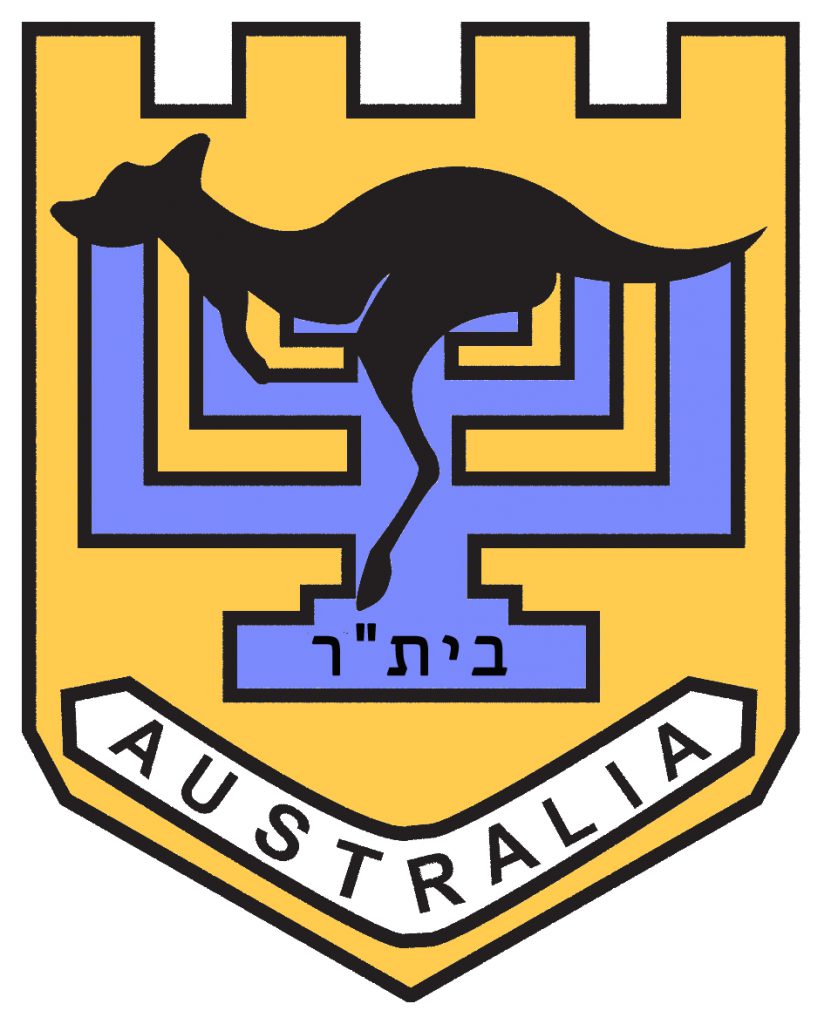The Founding of Betar
Betar was founded by the Zionist youth of Riga, Latvia, together with Ze’ev Jabotinsky in 1923 when they challenged him to come up with a way to save European Jewry from anti-semitism. They were inspired by his ideas and, with his leadership, formed Brit HaNoar Ha’Ivrit Al Shem Yosef Trumpeldor (The Covenant of the Jewish Youth in the Name of Joseph Trumpeldor). Its Hebrew acronym is ‘Betar’.
Betar quickly spread around the world and by 1927, Betar had taken root in Austria, Poland, Romania, Czechoslovakia, Hungary, Lithuania, Germany, France and Israel, even reaching as far as Harbin and Tientsin, China and eventually, Australia.

The Jews were searching for a way to get out of Europe and into Israel and Betar provided training and transport for Aliyah. Betar grew substantially in a very short amount of time. At its peak in 1934, Betar Poland had over 40,000 members out of a total of 70,000. Betar organised illegal immigration into Israel for tens of thousands of Jews from all over Europe for the next fifteen or so years. The 50s, 60s and 70s saw consistent growth for many Betar Maozim. Betar Australia was highly active at this time and then diminished in size in the 80s and 90s. Our numbers hit their lowest point in the late nineties and we have been working hard and yielding significant growth in Betar’s participation since then. We in Betar Australia are proud of our heritage, which we use as a springboard for future development.
After World War II and the Shoah, Betar shrunk significantly and nowadays Betar has sniffim in Russia, Ukraine, Uruguay, Argentina, Brazil, France, South Africa, The Netherlands and of course, Australia. All of these sniffim are administered under the World Betar Movement which is head-quartered in Jerusalem.

Betar Australia’s beginnings
Betar Australia was first established in Sydney in 1924 soon after Betar’s initial establishment in Riga, Latvia, but it closed in the 1920s or 1930s when its leadership made Aliyah to the British Mandate of Palestine. In 1948, Betar members from Harbin, China and elsewhere reestablished Betar in Melbourne to help provide refuge for the many Jewish survivors of the Holocaust who remained without assistance. Betar later expanded to Sydney, Canberra, and Brisbane. Though the Canberra branch has since closed Betar Australia is still a thriving youth movement that is completely run by youth for the youth.
Important Figures
Ze’ev Vladimir Jabotinsky

Betar was founded on the teachings of Ze’ev Vladimir Jabotinsky who was born in 1880 in Odessa, the Russian Empire. Jabotinsky was a true man of the world. He was a journalist and studied law in Italy and Switzerland but like a few other Jews of the early twentieth century, he had his eyes set on one location: Israel.
Jabotinsky saw the solution to the issues that beset the Jewish people of his time as recovering our biblical national identity: recapturing the pride of our Jewish ancestors of scholars and kings, relearning our ancient tongue (Hebrew) and regaining our voice as a people; for “silence is filth”.
As one of the leading literary minds of the early twentieth century, Jabotinsky was fluent in half a dozen languages and had written prolific poetry, novels, short stories and translations of prominent works. So, it should be known that he took particular care when writing the Betar Ideology and in how it shall be interpreted for years to come. Though Betar’s ideology was written well before the Jewish State was established, it still manages to effectively guide Betar in its perspective and relationship with Israel today.
Jabotinsky was known as a poet, warrior and statesman, and throughout his lifetime he founded and participated in the founding of many notable organisations, aside from Betar, including:
- The Zion Mule Corps and later the Jewish Legion of the British army in 1915. The first organised Jewish military force since the Bar Kochba Revolt.
- The Hagana in 1920 and the Irgun in 1931 which were pre-state underground military organisations which later formed the Israel Defence Forces in 1948 with the Lechi.
- Keren HaYesod (United Israel Appeal) in 1920, an organisation that raised funds towards the establishment of the State of Israel and its infrastructures.
- The Revisionist Zionist movement in the 1920s and 30s and the New Zionist Organisation in 1935 which broke away from the mainstream Zionist establishment at the time.
After his discharge from the British army in 1919, Jabotinsky began openly training Jewish groups in self defence and armed warfare as a means of protecting Jewish communities in Mandate Palestine from Arab rioting. In April of 1920 Jabotinsky was arrested by the British with 19 others for hiding a small number of weapons and ammunition. He was sentenced to 15 years in prison but was released in July of 1920 after a general pardon. In 1930 on a visit to the Jewish community of South Africa, Jabotinsky was informed by the British that he would not be able to return to Mandate Palestine ever again. He continued his writing and activism, and began working on plans to evacuate millions of Polish Jews from Poland to the Land of Israel.
He would never return to his beloved homeland until after his death. Jabotinsky died of a heart attack on August 3rd 1940 while he was visiting a Betar camp in New York. He was buried in New York up until 1964 when the remains of Ze’ev and his wife, Hanna Jabotinsky were brought to Israel and buried on Mount Herzl, the national cemetery of the State of Israel.
Jabotinsky viewed Betar as his crowning life achievement and he gave Betar his heart and soul, he wrote the following to the Provincial World Executive of Betar in 1928 on Betar’s fifth anniversary.
Betar is monastic as hermits in days gone preserved the purity and glory of your life. This shall be your law: dignity in everything that you do in word and deed, in your attitude, towards friends and rivals, women, the elderly, children. At work, whatever it be, manual labour or office work, public or private – work with devotion. In time of danger, act as a sharp weapon, and in daily life within society, be an example of generosity and honesty.”
Ze’ev Jabotinsky
Jabotinksy’s life, vision and legacy is remembered and celebrated every year in Israel on Jabotinsky day, the Israeli national holiday which falls on the 29th of Tammuz (Hebrew calendar).
Yosef Trumpeldor

Yosef Trumpeldor was a Jewish hero. Born in Russia in 1880, facing much anti-semetism he was labelled as a “useful Jew” which permitted him to live outside the Pale of Settlement. He joined the Imperial Russian army and fought in the Russo-Japanese war. He was captured and imprisoned in a prisoner of war camp in Japan. Jews were not allowed to reach certain ranks and it was extremely rare for a Jew to receive any decorations. Despite this, he was an exemplary soldier and eventually he became the highest ranking Jew in the Russian army at the time as well as receiving decorations and becoming the most decorated Jewish soldier in the Russian army.
While in captivity he became a Zionist activist and decided to work on and defend a group of farms in the north of Mandate Palestine. Upon his discharge from the army, he and Jabotinsky worked together to form the Jewish Legion and advocated for sherut – service to the nation, any form of service that the nation needed most. Trumpeldor died defending the settlement of Tel Chai in the Upper Galilee in 1920. His last words were – “Ein Davar, tov lamut be-ad artsenu.” (Never Mind, it is good to die for our land).
Jabotinsky viewed Trumpeldor as the quintessential ‘New Jew’. One that would pioneer and fight for their nation, and even sacrifice their life for their people.
Menachem Begin

Menachem Begin was National Director of Betar in Poland. To escape the Nazi invasion of Poland, he went to Soviet occupied Poland where he was sent to a labour camp for the “crime” of Zionism. After being released, Begin joined the Free Polish Anders’ Army as a corporal officer cadet. He was later sent with the army to Palestine via the Persian Corridor, where he arrived in May 1942. In December 1942 he left Ander’s Army and joined the Etzel. Upon joining the Etzel, Begin was immediately requested to assume command of the organisation. He led the revolt against the British which eventually caused the British to leave their mandate in Palestine.
After the establishment of the State of Israel, Menachem Begin was leader of the opposition in the Knesset up until the 1977 election where his party won. As prime minister Begin would focus much of his efforts on justice, for example his first action as prime minister was to allow a boat of Vietnamese refugees to settle in Israel. Other actions included giving a voice to the Mizrachim who felt largely ignored by the Ashkenazi government establishment, and creating peace with Egypt which earned him a Nobel Peace Prize.
Theodor Herzl

Theodor Herzl is the father of political Zionism and founder of the idea of the Jewish modern state. Herzl was so erred by anti-Semitism at the Dreyfus trial in France that he wrote a book called “The Jewish State”, a book which started a revolution. Herzl said “If you will it, it is no dream” – and being true to his belief, he set Zionism in motion with the formation of the first World Zionist Congress in 1897. Jabotinsky based his Revisionist Zionism on Herzlian ideas of political Zionism.
Legacy
Betar and Betar Australia have a rich history. The following websites offer a glimpse into the past that brought us to where we are today. We are always interested in learning more and recovering lost information about our past. If you want to share with us your stories, please contact us here.

Jabotinsky Institute in Israel
The aims of the Jabotinsky Institute, founded over 70 years ago, are to foster and disseminate the legacy of Vladimir (Ze’ev) Jabotinsky and the National Movement, and to encourage scholarly research on these subjects.
The Institute’s main components are the Jabotinsky Museum and the Archives of the Jabotinsky Movement, both of which showcase the movement’s history, factions, institutions and prominent personalities.
The Jabotinsky Institute was founded in 1937 by Joseph Pa’amoni. Mr. Pa’amoni (1902-1966) had personally initiated collecting documents and photographs pertaining to Ze’ev Jabotinsky’s activities and writings. Unknowingly, his work formed the basis of realizing the 1933 resolution of the movement’s Central Institution to establish an archive — to be called the “Betar Museum” — to serve as the official repository of the movement’s publications.
Click here to learn more.

162 Smiling Faces
This website honors and is supported by the boys and girls, now the men and women who built the youth movement Betar in Australia between 1948 and 1966 – and beyond.
Its members reside in Australia, Israel and the United States of America.
Click here to learn more.

